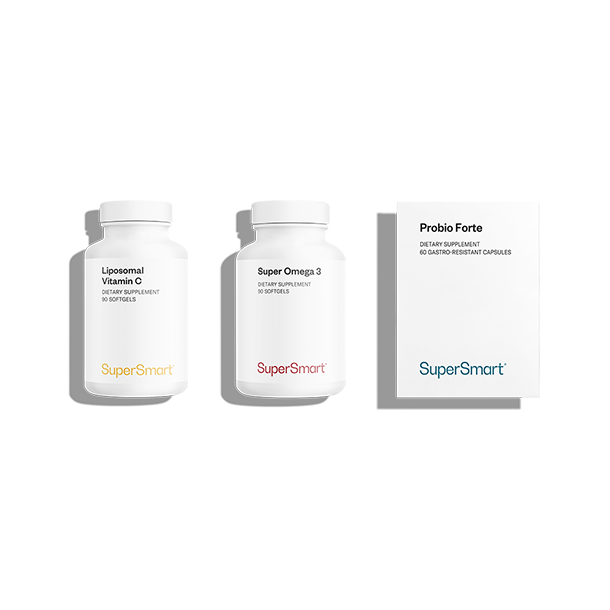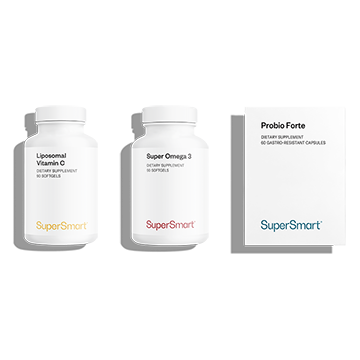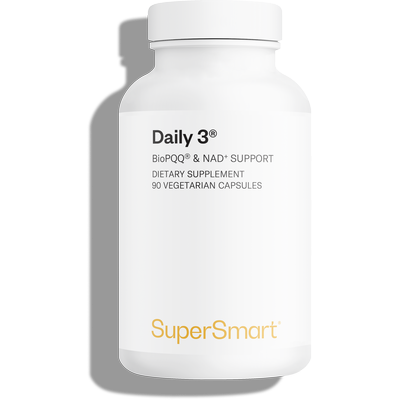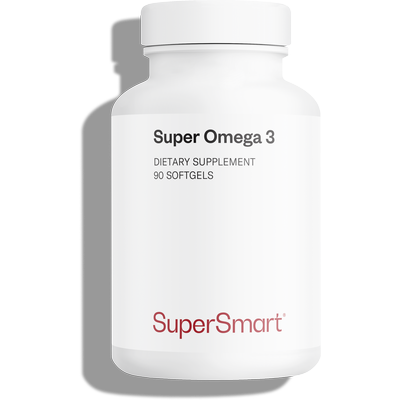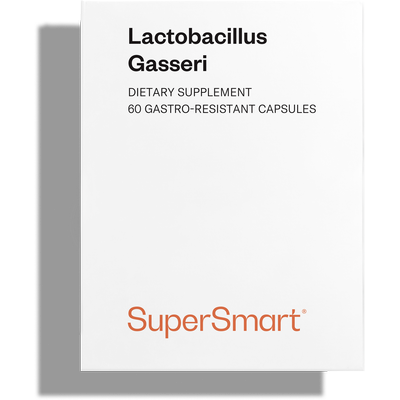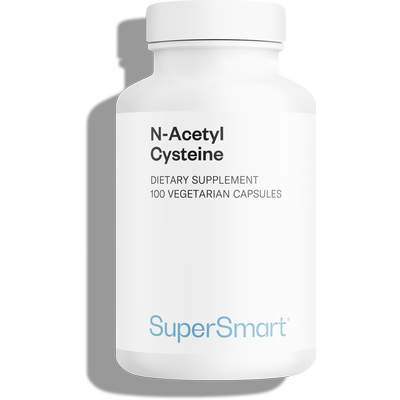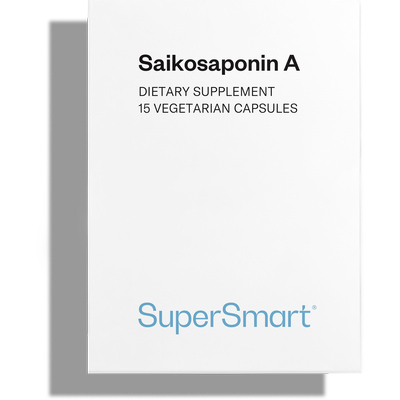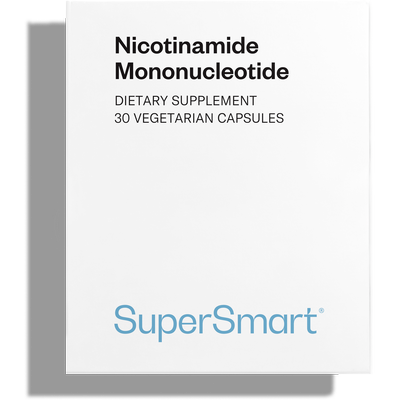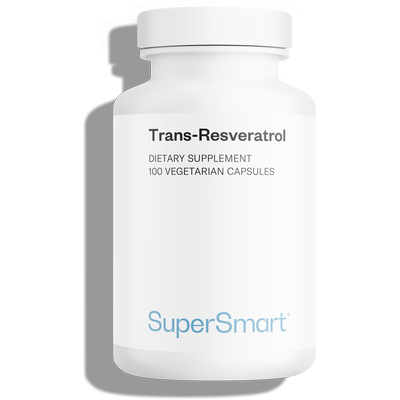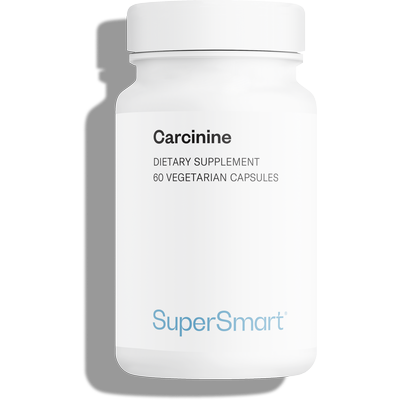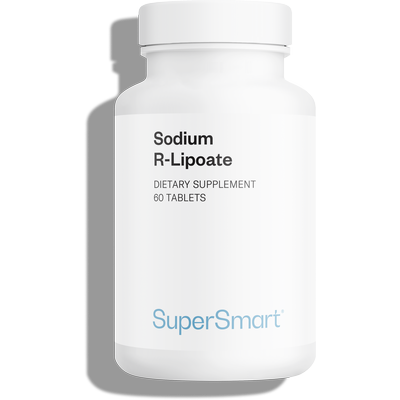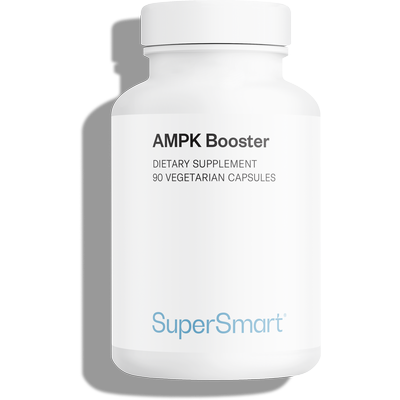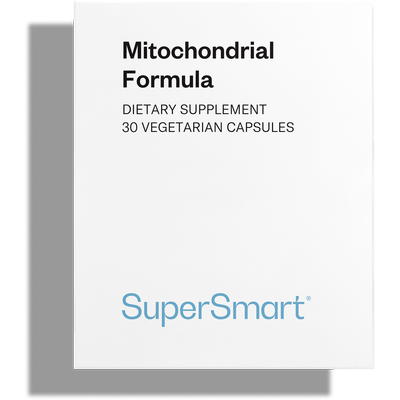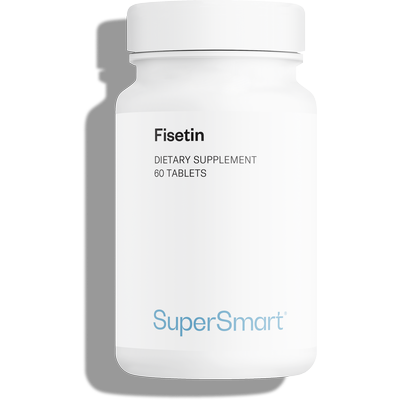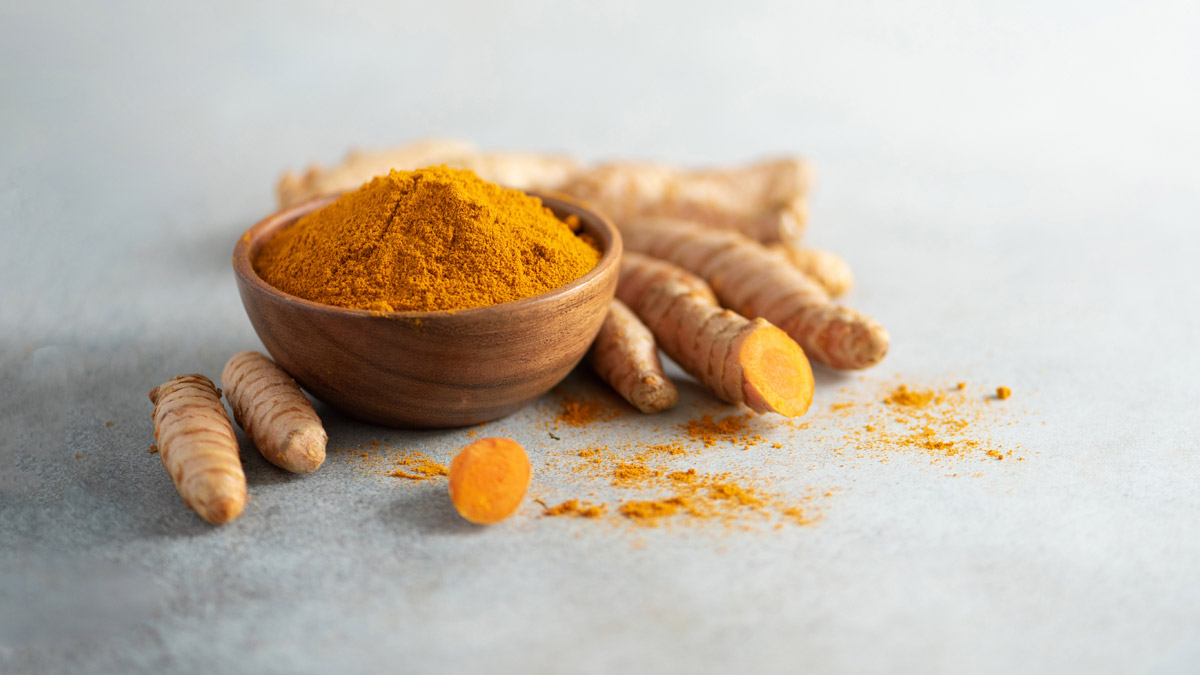In stock
Liposomal C + Super Omega3 + ProbioForte
Complete your selection
What is in Liposomal C + Super Omega3 + ProbioForte
Any questions?
In theory, the body is able to produce EPA and DHA from plant-source omega-3 fatty acids, but intake of these has declined significantly over the years as a result of modern farming methods and changes in our diet (3).
What’s more, the rate at which they’re converted is now very low as a result of our inappropriately high consumption of omega-6 (4). Of far less benefit to the body, these fatty acids are nonetheless ubiquitous in modern processed foods and they mobilise all the enzymes (elongases and desaturases) needed for the conversion of plant-source omega-3s into DHA and EPA.
So, if you decided to increase your intake of plant-source omega-3 fatty acids, you would not see any benefits unless you simultaneously made significant cuts to your omega-6 intake. The fact is, we actually need to consume the same amount of plant omega-3 as we do omega-6, but our actual consumption of omega-6 is 15-50 times greater than that of our plant-source omega-3.
In excess, omega-6 displaces omega-3 and invades cell membranes in their place, resulting in the formation of billions of pro-inflammatory molecules (5-6).
We need to obtain this essential vitamin from the diet and while it is naturally present in certain foods, intake can sometimes be inadequate. Individuals who do not eat a balanced diet, are older or who smoke are all more likely to be lacking in vitamin C, and in such cases, nutritional supplementation may be necessary to prevent deficiency. Vitamin C also offers significant therapeutic potential:
- Recommended for treating temporary fatigue.
- Boosts the immune system.
- Prevents colds and flu-like conditions.
The benefits of vitamin C are available in dietary supplements of various forms. Among them is “Liposomal Vitamin C”, which with its innovative liposomal delivery system, represents the latest generation of vitamin C supplements. Highly absorbable and bio-available, this new supplement is in the form of softgels, with a suggested dose of 3 capsules a day. Daily 3® and Daily 6® are two other formulations that offer supplemental vitamin C; in fact they contain a total of 43 and 55 different nutrients respectively.
Buy Liposomal Vitamin C to boost the immune system.
Probio Forte contains 5 different probiotics that are among the most widely studied by the scientific community.
Bifidobacterium lactis (SD 5219).
Species from the Bifidobacterium genus have been used in dietary supplement form for several decades and are completely safe to use. Bifidobacterium lactis is recognised for its effect on the immune system: a number of studies have demonstrated its ability to both reduce levels of various cytokines involved in systemic inflammation (tumour necrosis factor, interleukin 10), and improve phagocyte capacity and Natural Killer (NK) cell activity.
Species from the Lactobacillus genus: acidophilus (SD 5221), casei (SD 5213), plantarum (SD 5209) and Lactococcus lactis.
These species are highly regarded by the scientific community. They are found in fermented foods such as yoghurt and kefir. Lactobacillus acidophilus has actually been the subject of scientific research for more than 40 years: it was isolated from a human source in 1975 by Professor Stanley Gilliland and his team at North Carolina State University. These four species exert all the effects you’d expect from probiotics, but in particular, they offer significant antimicrobial effects, primarily as a result of their ability to secrete organic acids and various bacteriostatic peptides.
Following ingestion and absorption, EPA and DHA are incorporated into cell membranes with phospholipids. This is a slow process: Super Omega 3 therefore needs to be taken every day for several weeks or even months in order to fully obtain its benefits.
At the end of the supplementation period, the increased intake in omega-3 will be reflected in the composition of the phospholipid membranes. The NAT-2 study showed that supplementation with omega-3 produced a significant increase (up to 70%) in levels of these fatty acids in membranes. To achieve this, it is advisable to reduce your intake of omega-6 throughout the supplementation period.
Who is Probio Forte aimed at?
Probio Forte is a supplement that can be used by very many people, and in particular, by:
- Those who’ve finally decided they need to take care of their microbiota.
- Those suffering from digestive problems of various kinds (digestive discomfort, lactose intolerance, stomach ache, bloating, flatulence …).
- Those aged over 50 in whom gut flora composition often deteriorates (fewer bifidobacteria, more pathogenic bacteroidetes).
- Those who are taking, or have taken, antibiotics.
- Those who are frail.
- Those with immune problems or who wish to improve their immune response.
- Those who are simply keen to improve their daily health and well-being.
Yes. These two compounds definitely cross the blood-brain barrier, by means of transport proteins specific to long-chain polyunsaturated fatty acids. Several clinical trials have proved that oral administration of omega-3 results in accumulation of these fatty acids in tissues of the central nervous system (25-26).
Should Probio Forte be kept refrigerated?
It’s best to store this product at a low temperature and in conditions of low humidity to maintain the highest possible number of bacteria in a ‘viable’ state. That’s why SuperSmart stores all its Probio Forte stock in refrigerated conditions.
However, storing them at room temperature for a period of a few weeks will not produce a significant decrease in numbers of viable bacteria. This is because of the addition of natural ingredients which specifically increase the probiotics’ survival rate when stored at less-than-ideal temperatures.
What happens to Probio Forte probiotics once they’ve been ingested?
Once ingested, the probiotics are released in the gut where they are immediately rehydrated. No longer dormant, they begin multiplying, competing with other bacteria to adhere to the intestinal wall.
The survival and growth of the probiotics in the gastrointestinal tract is essential if they are to influence microbial populations and exert their beneficial effects. Studies show that probiotics need to be taken repeatedly and regularly in order to produce sustained growth and measurable effects.
Even when the probiotics are protected from stomach acids by delivery in DR Caps™, they should still be taken on an empty stomach with a glass of water in order to reduce this acidity as much as possible and ensure a better chance of survival for the few bacteria which may have been released too early.
Should you change your diet when taking Probio Forte?
It is advisable to very gradually increase your dietary fibre intake (from fruits, vegetables, whole grains), so as to provide the probiotics with the right conditions for their growth. Such fibre is actually considered to be ‘prebiotic’.
This product’s capsules are made of pullulan, a natural polysaccharide obtained by fermenting tapioca or corn. Pullulan contains no animal ingredients and provides an excellent barrier to oxygen, helping to preserve the integrity of the capsule’s ingredients. It is also an eco-friendly alternative to synthetic materials.
This product’s softgels are of marine origin. Made from fish gelatine, they ensure optimal uptake and are notable for their outstanding purity.
This product’s softgels are of bovine origin. They are particularly suitable for supplements that require rapid solubility. Made from high-quality bovine gelatine, they are safe and effective.
Need help?
You may also like

